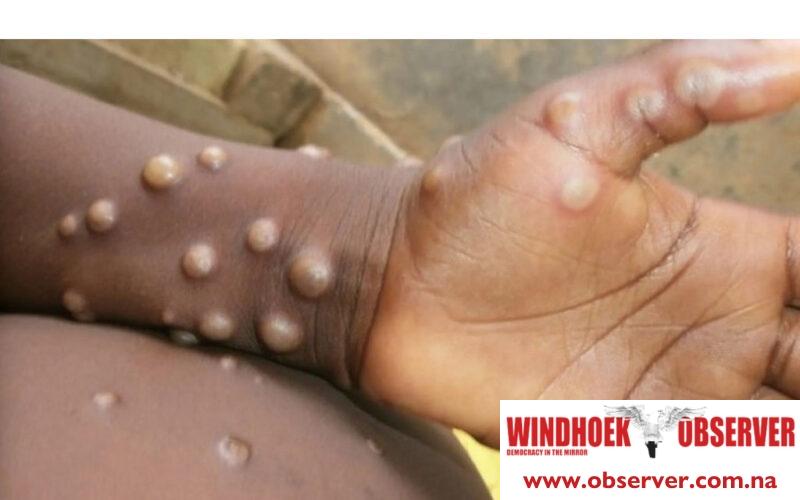Hertta- Maria Amutenja
The Ministry of Health and Social Services (MoHSS) has assured the nation that at present, Namibia has not recorded a confirmed Mpox case and that the country is fully prepared to handle any potential outbreak of the disease.
This comes as the Africa Centres for Disease Control and Prevention declared the outbreak a public health emergency of continental security on 13 August, followed by the World Health Organisation (WHO), which declared it a public health emergency of international concern a day later.
The executive director of the Ministry of Health, Ben Nangombe, said Namibia’s health system is actively monitoring the situation, with a robust surveillance system in place to ensure rapid detection, case finding, and containment of any public health event, including Mpox.
As of August 26, public and private health facilities in the country had tested 18 patients for Mpox.
Of these, 15 cases have returned negative results, while three cases are still awaiting confirmation.
“All individuals who are investigated for Mpox are considered suspected cases until laboratory confirmation is received,” said Nangombe.
If the results are negative, Nangombe explained, the patients will continue to receive appropriate monitoring and management for other illnesses.
The ministry added that 25 out of 36 hospitals nationwide have isolation facilities ready to admit suspected or confirmed Mpox cases that may require hospitalisation.
Additionally, 11 hospitals are repurposing COVID-19 isolation facilities to handle Mpox cases, if necessary.
“Some of the isolation facilities initially established for the Covid-19 pandemic were repurposed to provide other healthcare services, but they are now being adapted for Mpox response,” Nangombe stated.
The World Health Organisation (WHO) has also announced a preparedness and response plan to combat Mpox, requesting US$135 million for its implementation from September 2024 to February 2025.
“The smallpox outbreaks in DR Congo and neighbouring countries are controllable and stoppable. This requires a comprehensive and coordinated action plan among international agencies, national and local partners, civil society, researchers and manufacturers, and our Member States,” said WHO Director-General Tedros Adhanom Ghebreyesus.




